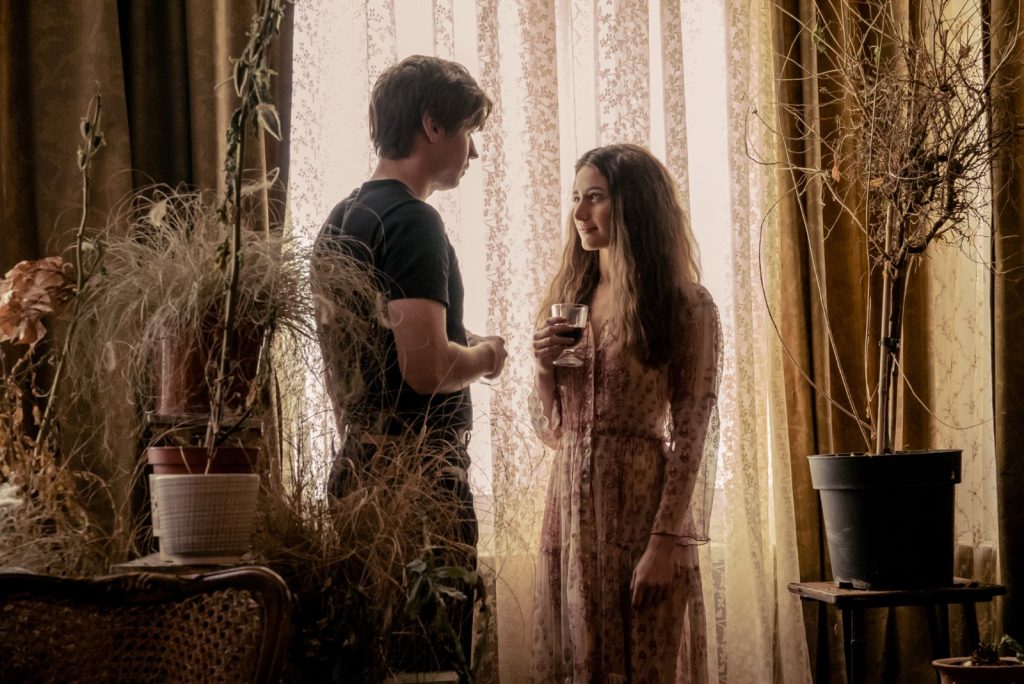Do you want to learn what it could have been like to be an East Germany Spy during the 1980’s exploring a rich cultural underground scene ultimately living a double life because you end up falling in love with counterculture and opt to be a spy AND a novelist at the same time? Ok to be fair, that’s oddly specific but I honestly really DID want to know what it was like!
Well, you’re in luck because ‘STASIKOMÖDIE’ (dir. Leander Haußmann 2022), or ‘A Stasi Comedy’ has just hit Melbourne theatres for the opening of The German Film Festival 2022.
Through the opening speeches of the night, A representative of the Goethe Institute (A German cultural institution in Australia) reminded audiences of the focus German art and film has had on the country’s history since World War Two. But not always in the way you’d predict, recently the focal point has shifted to The Stasi, The State Police of Communist East Germany after World War Two but before the fall of the Berlin wall.
When sitting in my chair I thought it to myself, why have I never heard of The Stasi? And whether that was my own ignorance or selective history education, a brief overview of Communist East Germany was greatly appreciated before the film made its Australian debut!
Spoilers for A Stasi Comedy Ahead! (But maybe that’s what you’re here for!)
The film begins with an older man, Ludger, now alienated from his secret Stasi past, reading through a folder of his deepest secrets. Jumping into his past, the film tells the story of how young Ludger, played by David Kross, fell into becoming a Stasi officer when… I don’t think he really wanted to. Ludger seems uncomfortable in the role most of the time, and honestly quite terrified. I giggled at the opening scene which depicts a moral judgement of Ludger to test if he is suitable to become a Stasi officer through a cheeky traffic light metaphor, hinting at the German stereotype that rules must be followed! Even when a small kitten was in danger, he followed the traffic signal… and thus began Ludger’s personal career hell.
The story continues to follow the unexpected success of Ludger’s spy career (despite his slip ups!) as he is employed to monitor the counterculture scene Prenzlauer Berg. Political radicals, artists, writers, and poets pump a much-needed warmth to the film and their desire for freedom and creativity enchants Ludger. His integration into the subculture scene felt fulfilling as he embraces the resistance and turns against his Stasi peers… ultimately fighting them in a… church? Anyways, despite the humorous location, Ludger becomes his true self in the counterculture scene and honestly, I just wanted to give him one big hug.
A Stasi Comedy was artistically experimental and simply stunning to view on the big screen. The film had a particular presence, bespoke through its well-crafted construction of the set and its visual storytelling through colour and place. The barren, cold and desolate landscape that paints East Berlin felt heartless. So cold in fact that human life and self-expression felt impossible. And thus, this contrast to the bohemian subcultural scene which the film aims to explore was an explosion of passion and creativity which I was starved of early in the piece and which I ultimately appreciated so much more once it encompassed the screen.

Image Courtesy of Allocinë
A passionate love affair runs along the resistance storyline of the film as Ludger falls in love with Natalie, played by Deleila Piasko, prompting his double life. I enjoyed the whimsical love affair between the two and was almost disappointed at the introduction of what the audience knows to be the women Ludger would finally marry, Corninna, played by Antonia Bill. Even though her political engagement may make her a better fit for Ludger, their love story felt empty. In hindsight however, I understand this to be purposeful as the Stasi ultimately set Ludger and Corrinna up to be married, highlighting that the Stasi was able to infiltrate any part of one’s life, even years after the Stasi was no more. Leaving the cinema, I think this was the most haunting aspect of the film.
And on that train of thought, even though “comedy” was named in the title, I felt the story fell short of an overly funny viewing experience. I did chuckle and exhale loudly from my nose at many (many!) times, however the story was more serious than I had expected. Whether it is my lack of exposure to German and/or European film conventions, jokes being lost in translation or the serious subject manner, I often felt that I was missing the full extent of the joke. However, I honestly believe I may be alone in this opinion as many German audience members outwardly laughed more than I did, so I’ll pin it down to cultural differences!
I walked away from A Stasi Comedy ultimately fulfilled at a film which felt more like art than your average movie. I had truly never seen a film like this before, and I think I’ll spend some considerable time raving about this film in the future!
The German Film Festival is still running by the way! And it’s absolutely worth a watch! So, hop along to https://germanfilmfestival.com.au/ to purchase a ticket before the conclusion of the festival on the 19th of June 2022!
Written By Olivia Hough
Header Image Courtesy of The Australian Book Review

